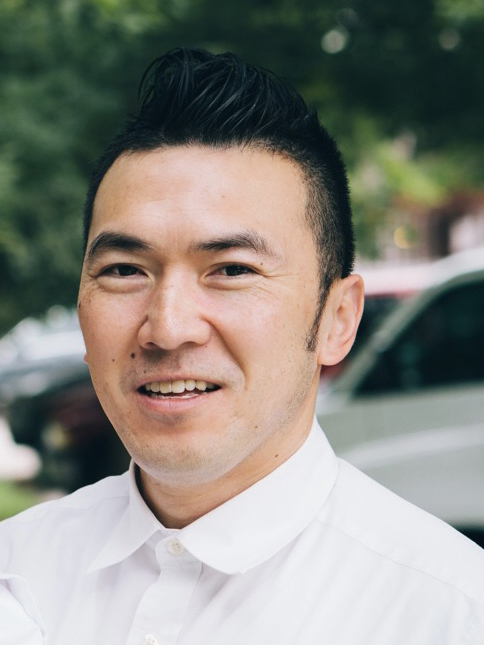
In 2008, Lang Le, MPP’10, left his job in the nonprofit sector to join Heller’s second-ever cohort of Master of Public Policy students. Little did he know he’d be forging a new career in health policy just as the United States’ health care landscape was about to be turned upside down. Le graduated from Heller in 2010—the same year the Affordable Care Act (ACA) became law—and accepted a position at the Centers for Medicare & Medicaid Services (CMS) where he has worked ever since.
When he was a child, Le and his family immigrated to the United States as refugees from Vietnam. For him, that experience fueled a desire to always make the most of the opportunities he received in school and the workplace, and, he says, “to contribute to policies and programs that continuously improve the lives of people that access and rely on Medicare to maintain their well-being and health.”
Those early months in his first job at CMS were grueling, he admits. “I was thrown into the fire, thrown right into policymaking,” he says.
In late 2010, Le joined a new group at CMS, which had been formed to implement certain ACA provisions around value-based purchasing, which ties payment to the quality-of-care clinicians, hospitals, and facilities provide to patients rather than a payment system such as fee-for-service that could reward volume rather than quality. Within his first year, he drafted Reports to Congress that proposed a framework for implementing value-based purchasing in skilled nursing facilities, home health agencies and ambulatory surgical centers.
Fortunately, says Le, he had some good experience under his belt from two concurrent MPP summer internships: one at the Blue Cross Blue Shield of Massachusetts Foundation, and one at the Massachusetts State House. Plus, Heller had trained him to understand that policy is rarely black and white. “There’s a lot of gray area to navigate, from a data perspective and from a stakeholder perspective,” he says.
Over 10 years later, Le is still at CMS, though by now he’s worked in multiple policies and program areas there. He is currently implementing a skilled nursing facility value-based purchasing program in the Centers for Clinical Standards and Quality (CCSQ). After four years in CCSQ, he recently accepted a position in the Center for Medicare’s Division of New Technology.
“I’ve essentially gone from helping design a value-based purchasing program for skilled nursing facilities when I first joined CMS in late 2010, to implementing a national version of that program years later,” he says. Le notes that the COVID-19 pandemic shone a spotlight on the need for quality improvements in nursing homes, which are linked to nearly a quarter of all COVID deaths in the United States. In his 2022 State of the Union address, President Biden recognized this program as a key tool to improving the quality of care across 15,000 nursing homes nationally.
Le, who received a Charles and Francene Rodgers Endowed Scholarship for his master’s studies, credits his Heller degree for helping him get his start in health policy, and for training him in the skills he needed to succeed. “I am able to work on complex national health care policies with diverse internal and external stakeholders, because Heller has provided me with the research, analytic and policy framework in order to be successful,” he says.
“And more importantly, I am forever proud to represent Heller as a professional in government, and be reminded every day that the work to advance social justice is ongoing.”
